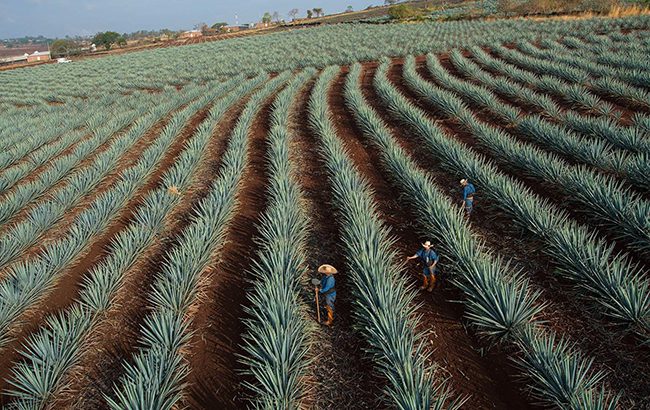Diageo to launch regenerative agriculture programmes
Johnnie Walker owner Diageo has announced two regenerative agriculture programmes for Scotch and Tequila as part of the brand’s £1 billion (US$1.2bn) investment into carbon reduction.

The programmes intend to drive enhanced biodiversity, improved water stewardship, carbon reduction and better soil health management in Scotland and Mexico. They will look at locally adapted practices such as cover crops, reduced cultivations and crop rotations.
Diageo also hopes to reduce the carbon emissions of farming barley, wheat and agave as part of its 10-year environmental, social and corporate governance (ESG) plan, titled Society 2030: Spirit of Progress. Agriculture currently contributes one-third of Diageo’s supply-chain emissions.
Ewan Andrew, Diageo’s president of global supply chain and procurement and chief sustainability officer, said: “As we commit to continued investment in long-term business growth, we’re excited to expand our regenerative farming work more formally beyond our current Guinness programme in Ireland.
“The Scotch whisky and Tequila brands have such a strong connection to their local communities, and as we build increased resilience and productivity across our end-to-end supply chains, we are building broader partnerships to enhance the impact of regenerative farming practices at scale.”
Tequila regenerative agriculture pilot
The Tequila regenerative agriculture pilot will build local knowledge of agave regenerative practices and investigate how the plant holds carbon over a six- to seven-year growth cycle.
It will span across Diageo-managed farms and its network of agave producers. Diageo’s Tequila brands include Don Julio, Casamigos and DeLeón.
The first phase of the Scotch programme will focus on around 20 farms in three barley and wheat regions in Scotland for brands including Johnnie Walker, Talisker and The Singleton.
As well as reducing carbon emissions, Diageo hopes to develop supply-chain resilience by improving soil health. This is especially important in Jalisco, Mexico, a region that is particularly exposed to climate risks.
Both programmes will educate farmers on how to adapt their practices in response to climate change.
Diageo will work in partnership with agriculture and soil carbon experts, including Agricarbon and James Hutton Limited.
Agricarbon will establish how much carbon the soil currently holds and track soil carbon changes over time, while James Hutton Limited will investigate regenerative farming practices exclusively for the Scotch programme.
Annie Leeson, CEO and co-founder of Agricarbon, commented: “Building our knowledge and understanding of the different raw materials across Diageo’s supply chain is key to reducing emissions and monitoring carbon changes in soils in different farming systems. Working with Diageo, we are pioneering large-scale assessments of soil carbon stocks.”
In August, Diageo reported a net sales increase of 10.7% in fiscal 2023, driven by its Scotch and Tequila brands.
The brand also announced earlier this year that it was using drones to drive farming efficiency and environmental benefits in Jalisco.
Related news
Diageo CEO Debra Crew steps down
